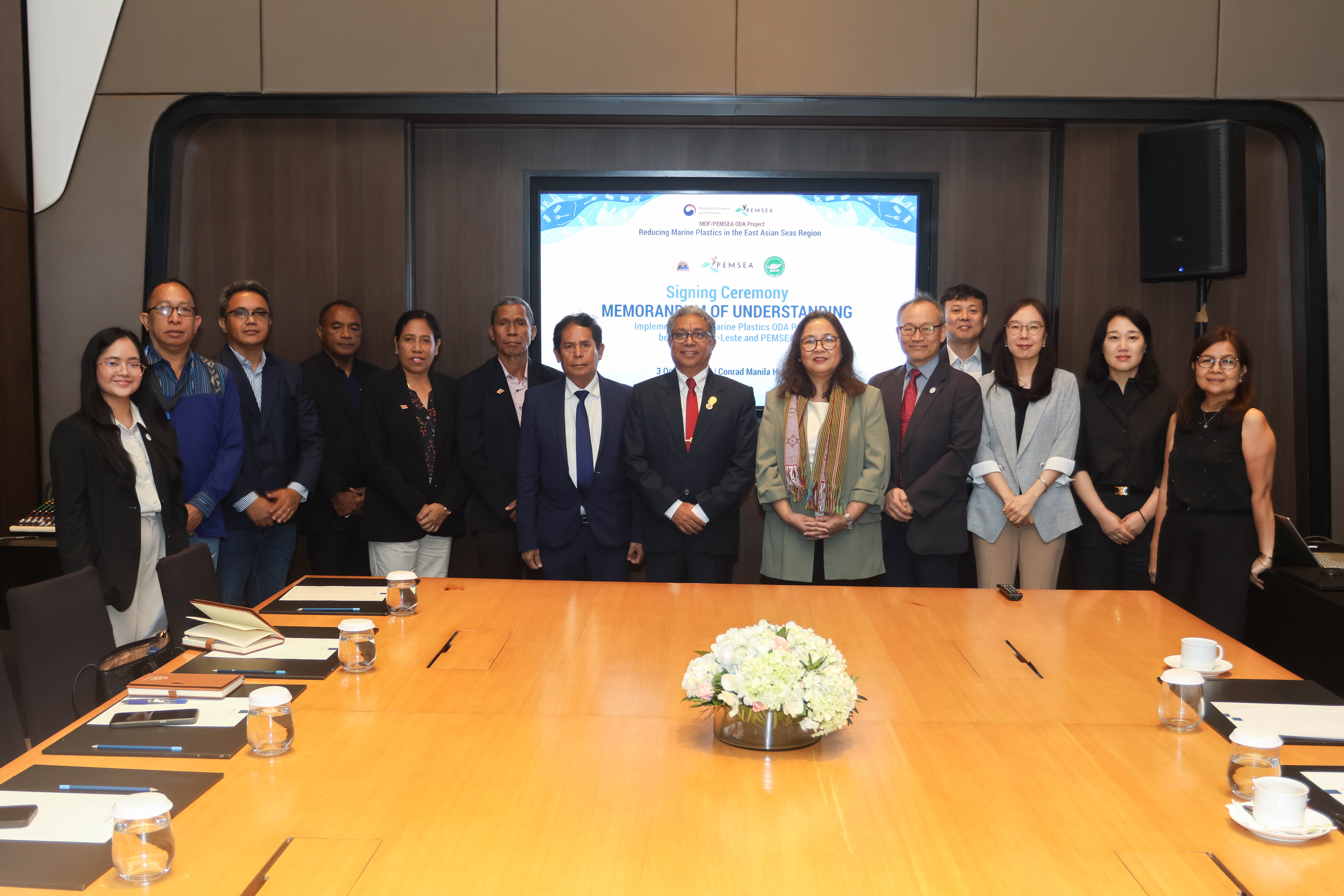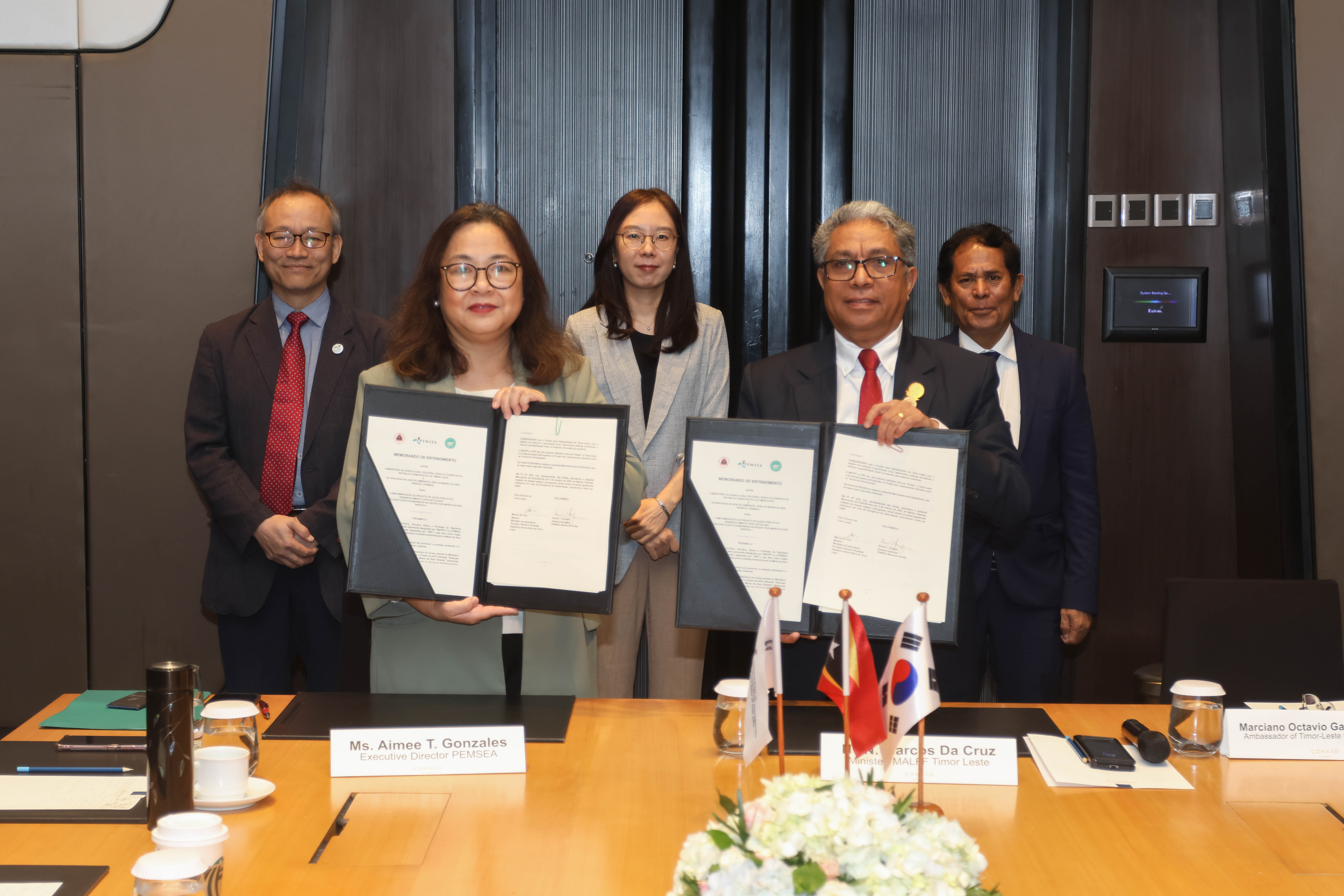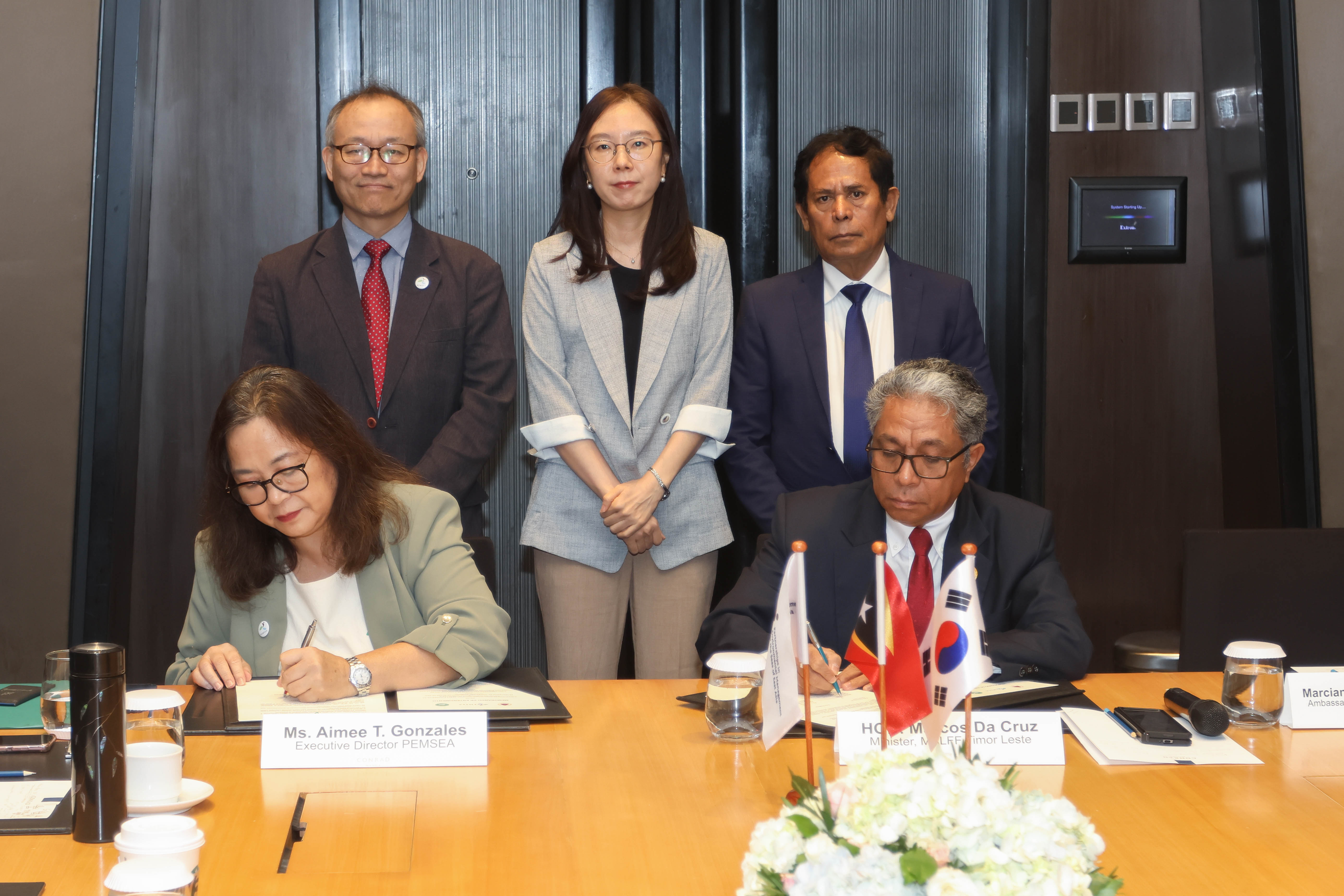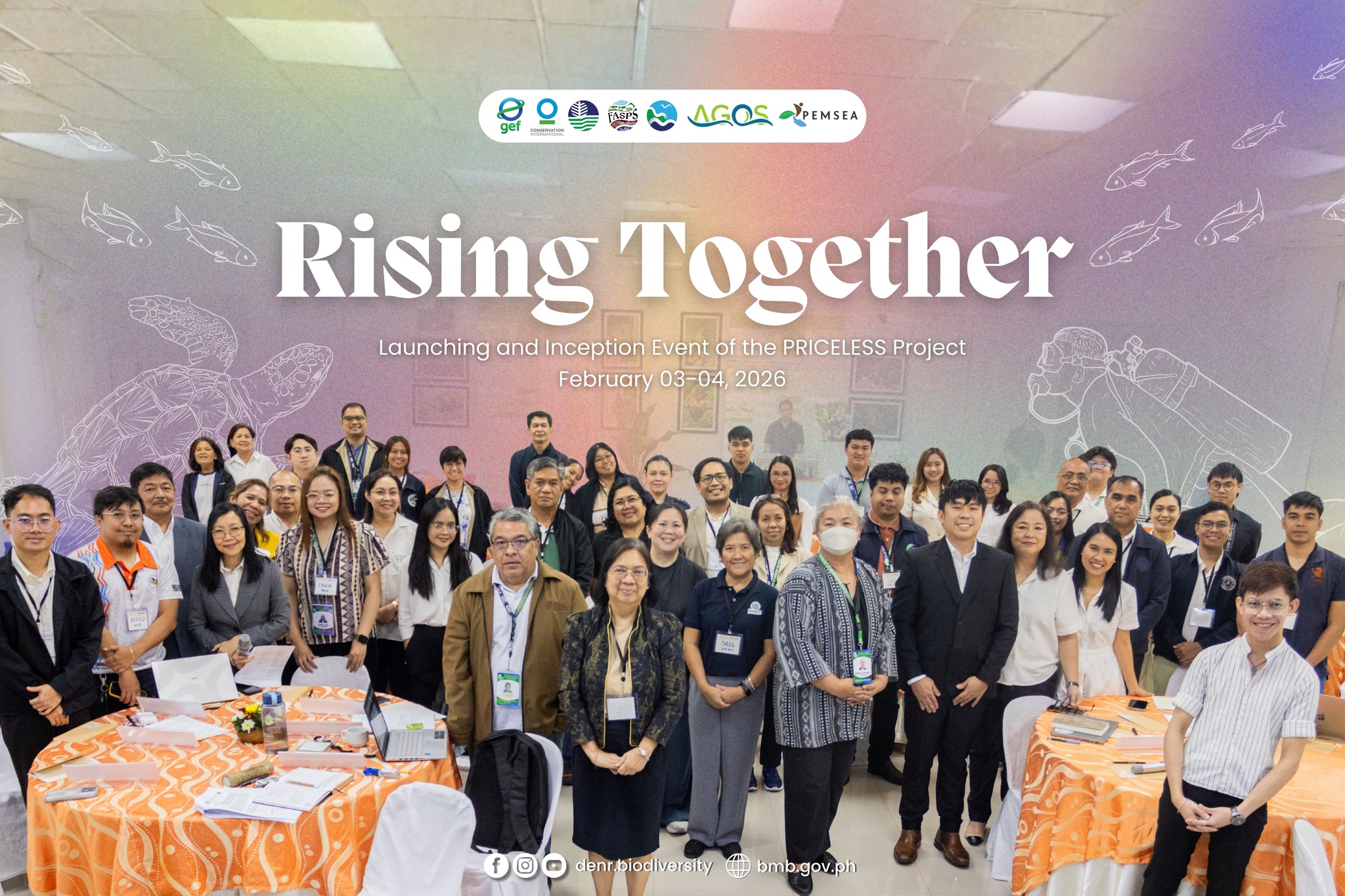Timor-Leste and PRF Sign Revised Memorandum of Understanding
Saturday, 4 October 2025

The Government of Timor-Leste and PEMSEA Resource Facility reaffirmed their partnership through the signing of the Revised Memorandum of Understanding (MOU) for the MOF/PEMSEA ODA Project on Reducing Marine Plastics in the East Asian Seas Region.

The MOU was signed by Minister Marcos da Cruz of the Ministry of Agriculture, Livestock, Fisheries, and Forestry (MALFF), and Ms. Aimee Gonzales, Executive Director of PEMSEA Resource Facility, in a signing ceremony held in Manila, Philippines on 3 October 2025.
The signing was witnessed by H.E. Marciano Octavio Garcia da Silva,Timor-Leste Ambassador to the Philippines, and officials from the MALFF and the Ministry of Oceans and Fisheries.
Minister da Cruz, emphasized the country’s strong commitment to tackling plastic pollution and promoting sustainable coastal management through the Marine Plastics ODA Project.

“This partnership gives us the opportunity to take decisive action,” Minister da Cruz said. He expressed hope that the project would lead to “cleaner shorelines, healthier fish stocks, and stronger coastal communities,” while also strengthening governance and accountability in waste management. He further underscored the importance of infrastructure that serves future generations and of empowering citizens to take responsibility for protecting the seas.
“Its real success will be seen in the quality of the fish on our tables, the resilience of our communities against pollution, and the pride we take in knowing that our seas are protected,” he said.
With the signing of the revised MOU, it further reinforces the operational and management framework of the Marine Plastics ODA Project in Timor-Leste by enhancing the roles of the National Project Board and establishing a National Project Management Unit.
Furthermore, in support of the implementation of Timor-Leste’s Blue Economy Roadmap, the municipalities of Atauro, Dili, Liquica, and Manatuto will receive technical assistance in terms of local marine plastics management, implementing innovative solutions, and building the capacity of local stakeholders and communities through training and awareness programs.




